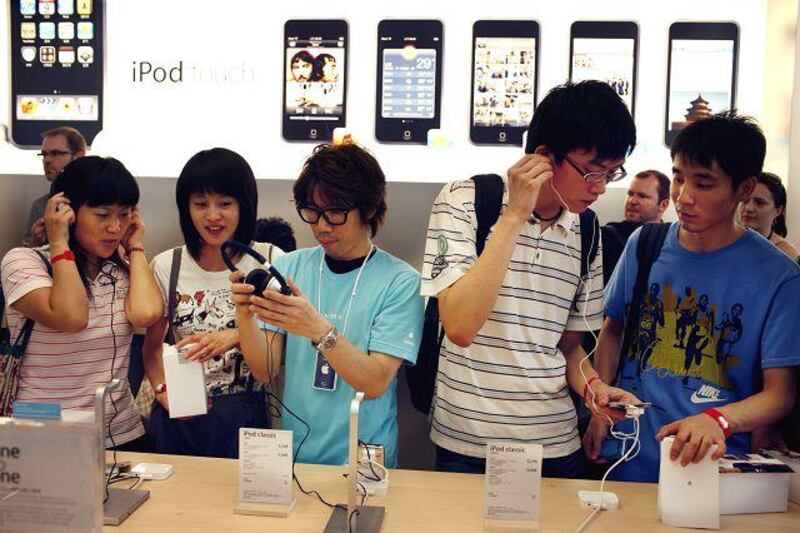BEIJING // China's decision to relax rules on the way it obtains foreign technology has stemmed from pressure from countries concerned that their companies are being shut out, analysts say. The loosening of restrictions that required Chinese technology to be bought for government contracts follows pressure from the US and the EU over what were seen as protectionist measures.
China's ministry of science and technology has published draft rules saying that to be eligible for consideration for government purchase, high-tech products must have patents and trademarks registered in China. Previously companies had to show patents were developed solely in China or the trademark was first lodged there. The rules would "treat equally all businesses in China established according to the law", a ministry official said. Ren Xianfang, a China analyst at the consultancy IHS Global Insight, said the new "much, much more relaxed" rules represented "a pretty big compromise" by the Chinese authorities. "Registration, and production and original development, are two completely different things," Ms Ren said.
The loosening of the rules was partly due to pressure from foreign governments and companies, she said, but also because authorities were keen to draw in more foreign direct investment in high-tech. "It's something the government needs to address if it wants to draw foreign investment, especially drawing foreign companies in the high-technology sectors," she said. "China is trying to transform its economic growth model from one [reliant] on low-end manufacturing, to high-value innovation, so it needs high-tech companies to transfer core technologies to their joint ventures or domestic operations in China."
The country's regulations have proved difficult for multinational companies with sophisticated research programmes that span national boundaries. Dr Bala Ramasamy, a professor of economics at the China Europe International Business School, said despite concerns from foreign companies and governments China has not been imposing unreasonable protectionist measures. "It is important to understand the state of the economy of China," Dr Ramasamy said. "It's a developing country and so there are certain restrictions put into place to provide a level playing field.
"If you want Chinese innovations to grow, you have to give them some degree of protection. Some government-mandated protection becomes necessary for a developing country." The draft proposals were greeted cautiously by US trade officials. "We continue to have broad concerns about the current direction of China's so-called indigenous innovation policies," said Carol Guthrie, a spokeswoman for the US trade representative's office.
But representatives of the EU chamber of commerce in China were more upbeat about the changes and the long period for companies to comment on them. "This is an important sign that policymakers in China recognise the role that fair competition plays in developing and enhancing China's high-tech capabilities, and that foreign-invested companies can make a valuable contribution," the business group said.
The draft proposals are open for comment until September 10. The rules say companies looking to have technology in computing, energy, communications and other fields qualify for government procurement must "possess registered trademark exclusive rights or usage rights in our country for the product". They also said products "must have intellectual property rights or intellectual property right usage permits in our country".
* with Reuters business@thenational.ae






